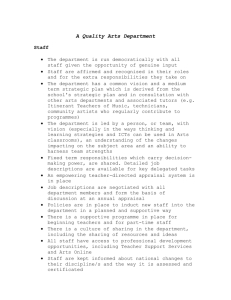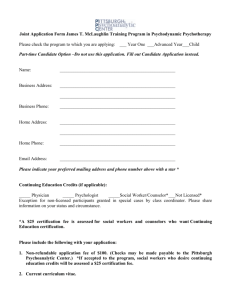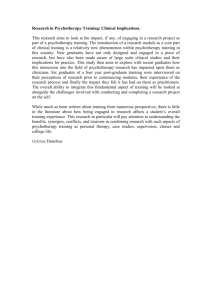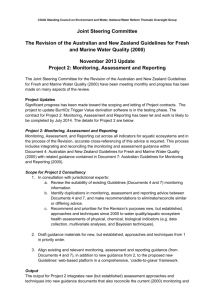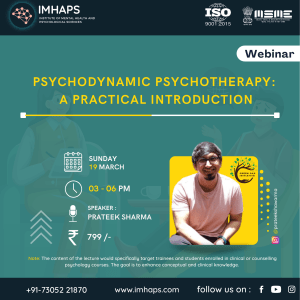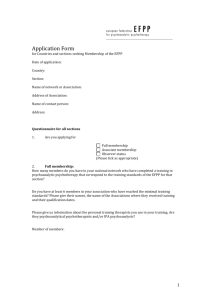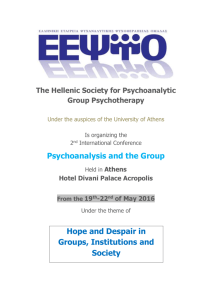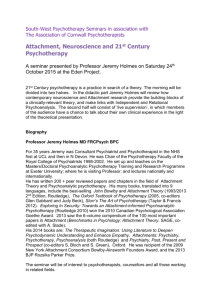Art Therapy Position Statement (Word, 28KB)
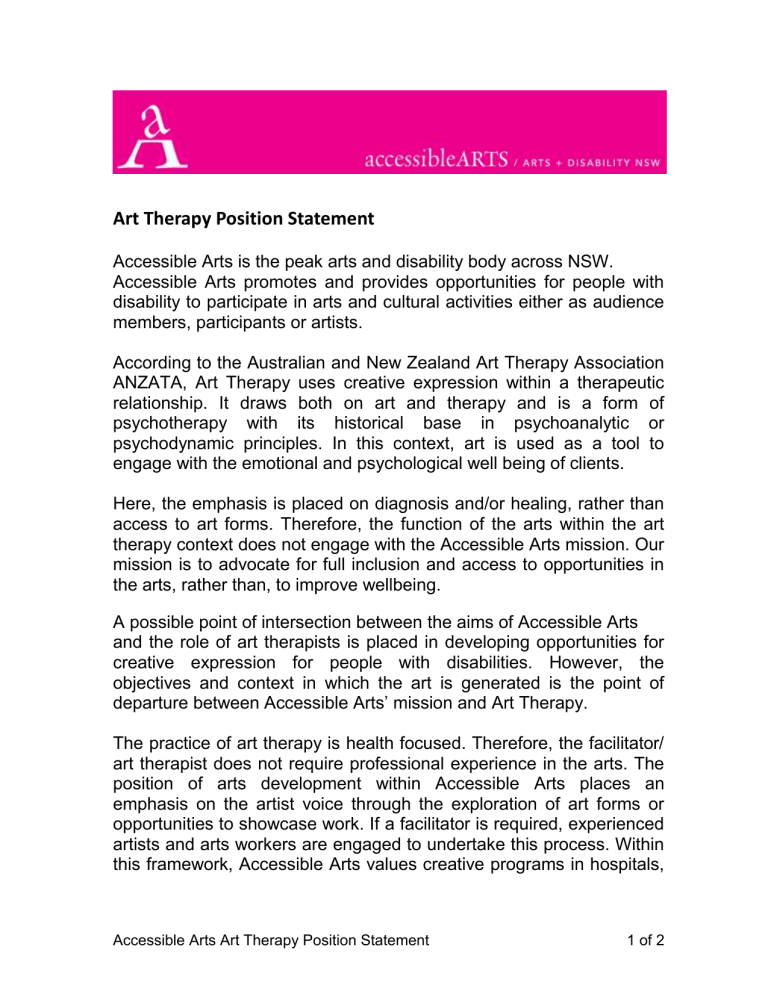
Art Therapy Position Statement
Accessible Arts is the peak arts and disability body across NSW.
Accessible Arts promotes and provides opportunities for people with disability to participate in arts and cultural activities either as audience members, participants or artists.
According to the Australian and New Zealand Art Therapy Association
ANZATA, Art Therapy uses creative expression within a therapeutic relationship. It draws both on art and therapy and is a form of psychotherapy with its historical base in psychoanalytic or psychodynamic principles. In this context, art is used as a tool to engage with the emotional and psychological well being of clients.
Here, the emphasis is placed on diagnosis and/or healing, rather than access to art forms. Therefore, the function of the arts within the art therapy context does not engage with the Accessible Arts mission. Our mission is to advocate for full inclusion and access to opportunities in the arts, rather than, to improve wellbeing.
A possible point of intersection between the aims of Accessible Arts and the role of art therapists is placed in developing opportunities for creative expression for people with disabilities. However, the objectives and context in which the art is generated is the point of departure between Accessible Arts’ mission and Art Therapy.
The practice of art therapy is health focused. Therefore, the facilitator/ art therapist does not require professional experience in the arts. The position of arts development within Accessible Arts places an emphasis on the artist voice through the exploration of art forms or opportunities to showcase work. If a facilitator is required, experienced artists and arts workers are engaged to undertake this process. Within this framework, Accessible Arts values creative programs in hospitals,
Accessible Arts Art Therapy Position Statement 1 of 2
mental health and other health care settings where the focus is arts based.
Accessible Arts recognises the importance of Art Therapy as an interdisciplinary form of psychotherapy. Accessible Arts acknowledges the value of this work and its role in supporting creative expression to meet health outcome for clients.
For further information on Art Therapy please visit the Australian and
New Zealand Arts Therapy Association (ANZATA) website at www.anzata.org
Accessible Arts Art Therapy Position Statement 2 of 2


